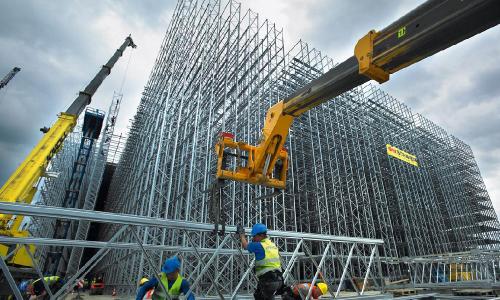Privatisation of Dosh enforcement functions unwise
LETTER | We refer to the Malaysiakini letter HR ministry needs to step up enforcement by privatising it.
While we laud the idea to privatise the enforcement of the functions under the Human Resource Ministry agencies including the Department of Occupational Safety and Health (Dosh), an in-depth study and consideration on its practicability must be carried out thoroughly by the stakeholders. Such privatisation should continue to provide a balanced eco-system where the expected level of safety and health at workplaces is sustainable and, more importantly, at a cost that does not excessively burden the industries.
The rapid industrialisation in Malaysia is phenomenal since the early days of mining and agriculture. Factories, buildings and infrastructure, marine and the oil and gas construction works etc., were installed and operated at a relentless pace clocking millions of work-man-hours alongside the physical and chemical hazards exposure to workers.
Dosh enforces the Osha (Occupational Safety and Health Act 1994) and FMA (Factories and Machinery Act 1967) and regulations made thereunder. Factories and installations, designated machinery, lifts, hoisting machinery, etc. are subjected to regular inspections and certified as appropriate. Dosh ensures compliance to safe engineering practices of designated machinery through detailed design review, fabrication inspection and tests before first coming into use.
Certificates of Competency are issued to qualified and accredited personnel that include but not limited to Electric Lift Competent Persons, Steam Engineers and Engine Drivers, Crane Operators, SHO (Safety and Health Officers), SSS (Site Safety Supervisors), CHRA (Chemical Hazards Risk Assessment) and Noise Assessor etc. prescribing their roles and responsibilities in their line of duty.
Malaysia underwent such a rapid industrialisation development which inadvertently, increased the volume of work that placed a heavy burden on the available Dosh inspectors to perform comprehensive and thorough inspections effectively. Suggestions and feedback from industries, therefore, indicates that it is appropriate for the government to consider outsourcing designated inspection activities to a private or corporate entity to ease such burdens.
The entity shall guarantee sufficient qualified inspectors (including by retired Dosh inspectors) who possess the knowledge and experience to perform their duties. The results will show improved inspection schedules and an enhanced service quality that brings business benefit to the industries and the public. Likewise, Occupational Safety Health (OSH) Inspection entails the risk assessment of workplaces of which competent Industrial Hygienists are qualified to perform the duty.
The writer's preconceived idea of a privatised, unified enforcement of the Human Resources Ministry's agencies should be clarified. Whilst the inspection activity could be outsourced to a service provider, a plausible explanation could not be applied to the enforcement of the laws. The laws upheld by the authority will ultimately guarantee the protection of the safety and health of workers.
The recent pollution debacle in Sungai Kim Kim is outside the purview of Dosh in as far as the irresponsible dumping of chemicals into a river is concerned but there are designated government and statutory bodies who are responsible to enforce the laws on offenders who cause such serious health effects, suffering and misery to the public and damaging the environment. Can we imagine how a privatised enforcement would deal with such a case?
OSH enforcement is within the jurisdiction of Dosh and this regulatory function must not be privatised nor outsourced. Trained Dosh inspectors are guided by the Enforcement Uniformity Model (EUM), a tool that is applied to assess enforcement decisions that commensurate with the severity of the offences, The power to enforce and proceed with the legal process against the offender is the responsibility of Dosh.
The idea to privatise and create a unified enforcement agency will require a detailed study of the multitasking skills of the unified enforcement agents. Perhaps enforcement of other agencies in the ministry (with the exception of Dosh) could be unified as their nature of work is complementary such as the enforcement of labour minimum age and wages, workers' welfare and social security, unions and industrial relations, skills training development, etc which are non-technical subject to job types.
The inherent tasks and job description of Dosh inspectors are to enforce laws and regulations that are very prescriptive and technical in content and for which possession of an engineering degree is a prerequisite during recruitment. Therefore, Dosh should not be unified with other agencies and should be on a standalone basis and continue to provide unbiased and professional enforcement to protect the safety and health of workers,
The writer is president of DoshTech, an association established by former staff of the Department of Occupational Safety and Health (Dosh) and the Factories and Machinery Department.
The views expressed here are those of the author/contributor and do not necessarily represent the views of Malaysiakini.
RM12.50 / month
- Unlimited access to award-winning journalism
- Comment and share your opinions on all our articles
- Gift interesting stories to your friends
- Tax deductable
